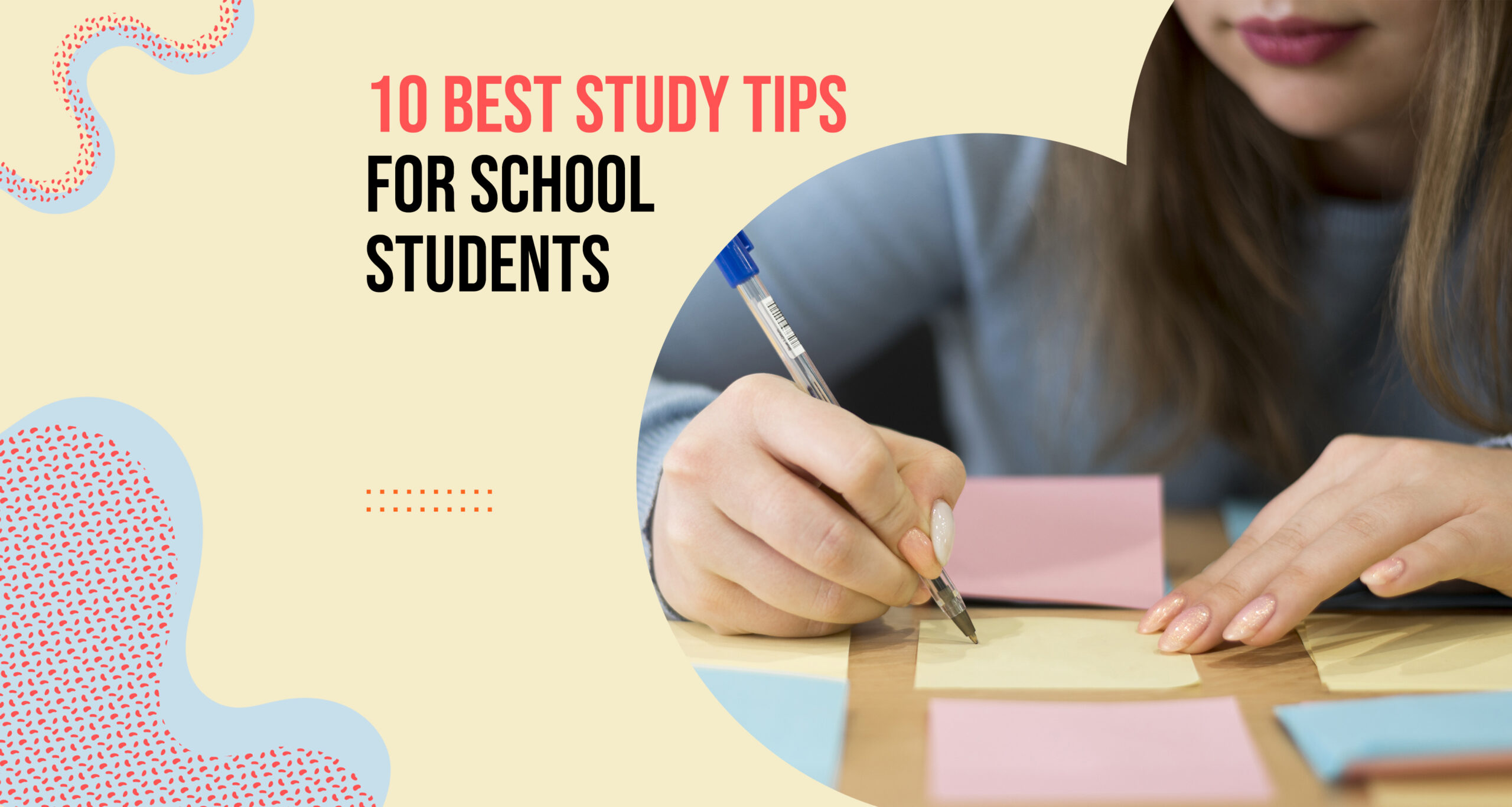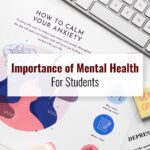
10 Best Study Tips for School Students
Table of Contents
- Introduction
- Ten Best Study Tips
- Importance of Effective Study Techniques
- Conclusion
Introduction:
Although there isn’t a universal procedure for studying, there are a few study tips you can employ with the goal of improving your recall and retention of information. Academic success and personal development as a student both depend on having effective study techniques. Nevertheless, given the multiple distractions and scrambled obligations it is imperative to adhere to a set of strategies to improve your study habits.
Here, we’ll cover the top 10 study tips for students that can help you maximize your learning potential, improve retention, and achieve your academic goals.
Implement the study tips listed below in order to improve your overall grade scores.
1. Make Your Study Space Productive
Your capacity for concentration and memory is significantly influenced by your study environment. Hence, finding a well-lit space with minimal distractions is the best way to study and memorize effectively. Make sure your study space is organized and clutter-free so you can concentrate on your tasks without getting derailed.
2. Define Precise Goals
Studies suggest setting attainable goals aids to keep you motivated and on track. Therefore, be sure to divide your more ambitious academic goals into smaller, and more doable activities. This method not only keeps you from feeling stressed out, but it also gives you a sense of accomplishment as you accomplish every task.
3. Devise a Study Timetable.
It’s a proven fact that establishing a consistent study schedule helps you manage your time efficiently. Hence, make sure to allocate dedicated time slots for studying various subjects and topics. Always, remember that consistency is key; adhering to a routine enhances your ability to retain information and reduces last-minute cramming.
4. Incorporating Active Learning Techniques
Among the best effective study techniques includes an active learning approach. Because, passive reading can lead to poor retention. Instead, adopt active learning techniques like summarizing, instructing others in the information, making flashcards, or taking part in group discussions.
When you involve yourself in active learning, you are at the forefront of your learning experience. These techniques encourage deeper understanding and long-term memory retention.
5. Utilize Effective Note-Taking Strategies
One of the best study tips is taking effective notes during classes. Try out several note-taking techniques, such as the Cornell Method or mind mapping, to see which suits you the best. To help you understand what you’ve learned, occasionally review and summarize your notes.
6. Breaks and Rewards
Intensive study sessions without intervals might result in feeling overwhelmed and poor output. Practice the Pomodoro Technique, which involves studying for 25 minutes, followed by a 5-minute break. Execute the Pomodoro Technique, which calls for 25 minutes of study time followed by a 5-minute break.
7. Stay Physically Active and Maintain a Healthy Lifestyle
Regular exercise and a balanced diet contribute to cognitive function and overall well-being. Engaging in physical activity improves blood flow to the brain, enhancing concentration and memory. Prioritize sleep as well; a well-rested mind is more receptive to learning.
8. Learn the Art of Using Technology Wisely
Technology offers a variety of tools to help you with your academics, however it may also be a double-edged sword.Digital flashcards, online materials, and educational apps can all be beneficial tools. However, establish limits to prevent information technology from diverting from study time.
9. Review and Self-Assessment
Of the many toppers study tips consist in regularly reviewing your notes and materials to reinforce your understanding. Self-evaluation, such as completing practice examinations or quizzes, enables you to spot your areas for growth. You can more efficiently customize your study sessions using this method.
10. Seek Help When Needed
If you’re having difficulty understanding a certain subject, don’t be afraid to ask for assistance. Ask for clarification from your instructors, peers, or even through internet forums. One of the best study tips is collaborative learning, which can offer new viewpoints and insights that might improve the way you understand things.
Importance of Effective Study Techniques
In order to facilitate meaningful and long-lasting learning experiences, effective study methods are crucial. These strategies act as a set of fundamental tenets that enable students to comprehend information more thoroughly and effectively, thereby improving academic achievement.
A combination of methodologies like active recall, spaced repetition, and interleaved practice, students are able to consciously recover and integrate their knowledge over an extended period.
In addition, techniques like mind mapping and summarizing help break down complex concepts into simpler ones that are easier to understand, resulting in a deeper understanding of the subject. Adopting the mentioned effective study techniques promotes retention of new information while fostering the growth of vital skills like self-control, time management, and critical thinking.
Conclusion
Effective studying is a skill that can significantly impact your academic journey. By creating an optimal study environment, setting goals, utilizing active learning methods, and maintaining a healthy lifestyle, you can enhance your learning experience and achieve your academic aspirations. Remember that everyone’s learning journey is unique, so adapt these study tips to align with your preferences and needs. With dedication and perseverance, you’ll be well on your way to academic success.
Also Read- Vital Role of Homework In Child’s Growth: Encouragement Tips
FAQs
Q1: How can I overcome procrastination?
Overcoming procrastination involves self-awareness and discipline. Break tasks into smaller steps, set deadlines, and use the reward system. Hold yourself accountable by sharing your goals with a friend or family member.
Q2: What’s the best time to study?
Each person has a different preferred study period. Some individuals are more productive in the morning, while others find their focus peaks during the evening. Identify your prime study hours and schedule accordingly.
Q3: How do I deal with exam anxiety?
Exam anxiety is common but can be managed. Practice deep breathing, visualization, and positive self-talk. Adequate preparation is also crucial; thorough studying reduces anxiety about the unknown.
Q4: Which is preferable: individual or group study?
Both individual and group study have their merits. Studying alone allows for focused concentration, while group study enables discussions and different perspectives. Experiment to find what suits you for different subjects or tasks.
Q5: How do I retain information better?
Active learning techniques, such as summarizing, teaching, and practicing retrieval, aid information retention. Regular revision and spaced repetition also reinforce memory.
 AIR CONDITIONED
AIR CONDITIONED




